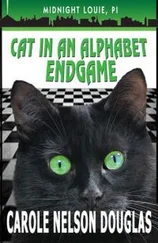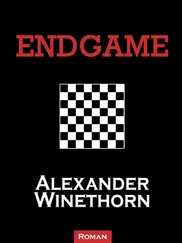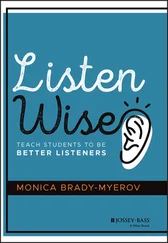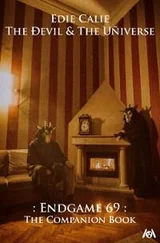Regina began to fear for Bobby’s future if he didn’t take his schoolwork seriously. More than that, she was worried that his interest in chess was becoming obsessive. She believed he was so engrossed in the game that he was never quite in touch with the reality around him, so addicted to chess that he would not—could not—control it, and that eventually, because of the exclusion of everything else, this accidental interest might ruin his life.
For Regina, discussing Bobby’s overcommitment to chess with Nigro was a hopeless endeavor. If anything, Nigro was constantly encouraging him to play more, to study, to enter tournaments. Bobby became Nigro’s protégé and chess companion. A caring man who was aware of Regina’s strained financial state, he never charged her for the lessons he gave Bobby, whether chess or music. Nigro and Bobby began to play clocked games together, at two hours each—the official speed of tournament chess—and with each encounter Bobby seemed to become stronger, which made him study even more, until he was beating Nigro in the majority of games.
Much to Bobby’s consternation, Regina insisted that he have a psychological evaluation to determine whether something could or should be done to temper his relentless preoccupation with the game. When she brought the boy to Dr. Harold Kline at the Children’s Psychiatric Division of the Brooklyn Jewish Hospital, Bobby was less than cooperative. Sensing this, Dr. Kline didn’t give him any of the battery of personality, intelligence, or interest tests usually used to assess a child. He simply talked to the boy. “I don’t know,” said Bobby sullenly, when asked why he spent so much time playing chess and not on his schoolwork. “I just go for it.” With just a word of advice to Bobby about not neglecting his schoolwork, he asked the boy to step outside. Dr. Kline told Regina that she shouldn’t worry about Bobby, that children often became intrigued, virtually obsessed, with games, toys, sports, and other things, and that after a while they either lose interest or step away from such heavy involvement. No, he didn’t think that Bobby was neurotic, and he didn’t recommend therapy. “Neurotic” was a word that really explained nothing, he added, pointing out that Bobby was not hurting himself or others, chess was probably stretching his mind, and she should allow him to play as often as he liked. Her son’s resistance to schoolwork was a mild disorder that many children go through, but his study of chess, an intellectual activity, was supplanting it. Perhaps, he added, she could fashion some of his schoolwork as a sort of game, which might pique his interest.
Not fully comforted, Regina sought a second opinion. She learned of a psychiatrist who was a chess master, Dr. Ariel Mengarini, a nonanalytic neuropsychiatrist who worked for the government. Mengarini was so in love with chess that he identified with Bobby’s passion. He confessed to Regina his own fanaticism for the game and also something else she didn’t want to hear about Bobby: “I told her that I could think of a lot worse things than chess that a person could devote himself to and that she should let him find his way.”
Gradually, Bobby’s performance at the Brooklyn Chess Club began to improve. It took him a few difficult and sometimes discouraging years, but eventually he was winning the majority of his games. For their part, his opponents were impressed with his tenacity and clear signs of progress. “I’d already gone through most of the books in the public library near us and was beginning to want chess books of my own,” Bobby said later, reflecting back on the period. Nigro gave or loaned him books, and Regina permitted him to purchase a book now and then, whenever she had some spare cash. Bobby’s allowance of 32 cents a day didn’t afford him much of an opportunity to buy books—and even as he grew older and his per diem was raised to 40 and then 60 cents, the money was spent on chocolate milk for lunch and a candy bar after school.
Whenever Nigro was finished reading his copies of Chess Review and Chess Life , he gave them to Bobby, who became fascinated with both periodicals, not only for their multitude of engaging and instructive games and descriptions, but because they gave him the chance to read about the great champions in chess. Sitting with those magazines, it was as if he were studying the chess equivalent of Plutarch’s lives of the Roman generals or Vasari’s lives of the artists. Quite simply, they inspired.
Then, in the summer of 1954, Bobby had an opportunity to see in action some of the greats he’d been reading about. It turned out that the Soviet team would be playing for the first time on United States soil.
In that era of anti-Communist hysteria, when anyone in America who read Karl Marx’s Das Kapital or wore a red tie was thought to be a Communist, the president of the U.S. Chess Federation, Harold M. Phillips, a lawyer who’d defended Morton Sobell in the Rosenberg espionage case, confided almost with relish that he expected to be called in front of Senator McCarthy’s House Un-American Activities Committee hearings and accused of being a Communist simply because he’d tendered the chess invitation to the Russians. It never happened.
It’s important to stress the difference between Soviet and American chess teams at that time. The Soviets were all not just professional players, but grandmasters, the designation given to the highest-rated chess masters who have distinguished themselves in international tournaments. Tsar Nicholas II originally bestowed the title in 1914; it was being used in 1954 and is still awarded today.
The Soviet players were subsidized by their government and in many cases given dachas as retreats where they could study and train for matches. Back then, these grandmasters commanded as much prestige in Soviet society as a movie star or an Olympic athlete does in contemporary America. When Mikhail Botvinnik, who became World Chess Champion, arrived at the Bolshoi Opera House, he was given a standing ovation. In the mid-fifties, the Soviet Chess Federation had four million members, and playing chess wasn’t just required in elementary schools but compulsory in after-school activities; youngsters who possessed talent were given special training, often working one-on-one with grandmasters who were tapped to groom the next generation of world beaters. One Soviet tournament registered more than seven hundred thousand players. In the USSR, the playing of chess was considered more than just a national policy. It was deeply ingrained in the culture, and it seemed that everyone—man, woman, and child; farmer, civil servant, or doctor—played chess. The impending clash between the Soviets and the Americans thus had Cold War implications.
Three days before the match an editorial in The New York Times observed: “It has become painfully obvious to their opponents that the Russians bring to the chessboard all the fervor, skill and manifest devotion to their cause that Foreign Minister Molotov brings to the diplomatic conference. They are out to win for the greater glory of the Soviet Union. To do so means public acclaim at home, propaganda victories abroad.” Chess was not merely a game to the Soviets; it was war, and not as cold as might have been thought.
The U.S. Chess Federation then had only three thousand members, no national program to promote chess or train children, and only boasted one grandmaster, Samuel Reshevsky. His status netted him a grand total of $200 a month, a stipend meted out by a few admiring patrons. In addition, he made approximately $7,500 a year giving exhibitions and lectures. It was falsely rumored that he didn’t even own a chess set.
In many ways the looming match was analogous to a team of National Basketball Association all-stars playing a college team. There was always the possibility that the collegians would win, but statistically their chances would be much lower than a thousand to one.
Читать дальше
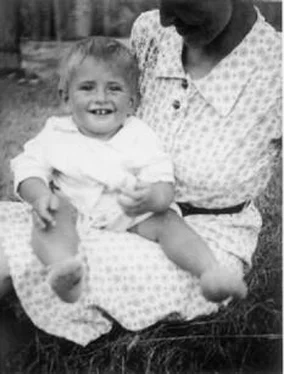

![Антон Текшин - EndGame [СИ]](/books/394477/anton-tekshin-endgame-si-thumb.webp)
